THE REINVENTION OF: CHEUK KWAN 關卓中:以生命影響生命
English 英 : Melissa Haggerty | Chinese 中 : 謝慧玲
VENUE: Fishman Lobster Clubhouse Restaurant · ART DIRECTION: Melissa Haggerty · PHOTOGRAPHER: Jackson Huang, Ikonica· PHOTOGRAPHY ASSISTANT: Jonah Wiley, Ikonica · MAKEUP & HAIR DESIGN: Maggie Ng, Pro Beauty Artists · ADDITIONAL Photography: Courtesy of Cheuk Kwan
Film Maker. Author. Activist. Cultural Advocate. Pioneer. Eternal Explorer.
Full disclosure: this was originally going to be a story focused on a man’s book that he recently wrote, based on a film series he began producing almost 22 years ago. But as we got to know Cheuk Kwan during the writing of this article, it quickly became apparent that his own life story needed to become the story.
We don’t want to take away from the brilliance of his book Have You Eaten Yet? Stories from Chinese Restaurants Around the World or what a fascinating, entertaining and moving read it is. A universal story of migration and immigration that is part human interest, part drama, part comedy, part global history lesson and all-round-storytelling-gold, the narrative he weaves so compellingly should be considered essential reading. And not just for the Chinese community. After all, very few Canadians are originally from this land we call home; most of us are descendants of immigrants — the only variable is how many generations ago.
To talk about the book means we need to start with the documentary he called Chinese Restaurants. Despite not having any experience as a filmmaker, Cheuk Kwan set out to examine the how and why people settled where they did — and why they opened Chinese restaurants wherever they landed. For 4 years, he crossed the globe, travelling to 13 countries, venturing behind kitchen doors to feature the journeys of 15 émigrés he found in each place. From Madagascar to Israel, from Brazil to South Africa, the real-life stories he uncovered along the way were more riveting than any work of fiction could ever be. Some were running from war, many from political oppression, a few from religious persecution; some were highly educated; some were farmers — yet all were forced to pick up a wok and a spatula — not because they loved Chinese food, but out of necessity. The one thing they all had in common was that they all ended up a long way from where they began. And they all had to start anew in a foreign land.
製片人、作家、社運份子、文化先鋒、探險家…當一個人集合以上元素,把廿二年周遊列國所拍攝的故事,由菲林演繹為文字,頓然,關卓中(Cheuk)的個人故事,比他拍攝的故事是更加故事的故事?
可能由自己講自己的故事,比什麼虛構的材料都更加動聽及精彩!
單憑表面閱讀Cheuk最新作品《Have You Eaten Yet? Stories from Chinese Restaurants Around the World》,內容的張力,已是一個閱讀文化磁石,在普世遷流移民段落中所提及的情節,過程深入刻劃,每一個笑容或是一滴眼淚、歷史背景、個人對生命的探索,這已是令讀者帶來另一個文化空間的閱讀體驗。雖然書中的所有主角是華人,但他們所經歷的已超越華裔社區的框架。畢竟,大部份加拿大人都屬於移民的一群,本是同根生的理念在原居地以外的延續,可能變成日後下一代對身份認同的問號。
Wok fire at Darjeeling
“I was never really a filmmaker — Chinese Restaurants was my only film — I only made it because I wanted to talk about Chinese restaurants and the Chinese diaspora. But I happened to love photography and I love film, so I was able to pick up what I needed to know in order to craft the series.” When discussing the subsequent book, he delivers a similarly emphatic statement: “I’m not a writer either — this will be my only book.” When he felt compelled to revisit the people and places from the film, he discovered that putting the stories down on paper would allow for greater development of the characters and added depth to the storytelling — not only in fleshing out their stories, but of Kwan’s own experiences while documenting them too. “The reason I wrote the book and made the film was because I found that these peoples’ stories mimicked my own life.”
Bingo. There it is.
Just like the people he filmed and wrote about, Cheuk Kwan has made a lifelong habit out of diving headfirst into the unknown. It started without him having any say in the matter: at the age of one, his family moved from Hong Kong to Singapore where he lived for 12 years and attended a Mandarin-speaking school. One day between grade 6 and 7, he learned they were moving back to Hong Kong where he would be thrust into a highly competitive school system where he had to relearn Cantonese and learn English quickly. Just as he was settling in there, he got the most traumatic news of all: his father (a trader) had been posted to Tokyo. As the boat pulled out of Hong Kong harbour at midnight and he watched the lights fade into the distance, he braced himself for another new beginning. Again.
Chiang at Bar Sur
The Tokyo years brought a new school system, another foreign language and a surprising turn of events: Kwan found himself at an international school and an unwitting part of a multinational posse. His friends were kids from diverse places and ethnicities; many of them mixed-race. To 12-year old Cheuk, it was an intoxicating melange of cultures and experiences. “The interesting thing was that we were ALL marginalized, yet it didn’t bother any of us. We were different; we were unique — we were not the regular 20 million Japanese school kids and we embraced that!” Kwan refers to this period as a defining time for him. “There was a bonding that formed me.”
“The flip side is if you let marginalization defeat you, then you never grow. You must overcome it.” As a15-year old, he figured out how to fit in with different people, cultures and situations. Though he didn’t know it then, he was developing a skill that he would use for the rest of his life.
Adulthood brought on a wanderlust of his own making. The American educational system at his school in Tokyo Yokohama led to a scholarship at a U.S. university in Ohio. On his very first day, as the bus travelled from the airport through downtown Cleveland to the school, he was astounded to see so many Afro-Americans. And so many boarded up, abandoned buildings — but then again, for context, this was right after the ’68 riots. “I was thrown into a school that had very few Asians, but I actually found that quite helpful. I had to dive right in and integrate immediately.”
COLLAGE OF CHINESE RESTAURANT WORKERS AROUND THE WORLD
After graduation, he found his way to Canada. This part might be of special significance to you, dear Fête Chinoise readers. Because before there was the magazine you hold in your hands today, Cheuk Kwan co-founded The Asianadian magazine in 1979. Designed to be a voice for all Asian Canadians — not just the Chinese — the grassroots publication focused on arts and cultural activism under the premise that it was time for Japanese, Chinese, Korean, Vietnamese, Malaysian, Indonesian, Filipino, East Indian, Pakistani, and Sri Lankan Canadians to feel a sense of collective identity and to be heard.
要完全體驗書內內容的精神,首先要走到製作人拍十五集《中餐館》的內心世界 —— 於四年來,Cheuk走過二十萬公里,到了世界十三個不同國家,從十五位素未謀面的移民,探索他們在廚房以外的遷流故事。從馬達加斯到以色列,由巴西到南非,每一個真的也假不了的中餐館故事,比起劇情片更加劇情,是因為戰爭走難、或是政治宗教壓迫而逃亡⋯⋯ 主角可能原是高級知識份子或是農民,他們都撰寫着個人獨特的一鑊走天涯的心路歷程 —— 事實上,他們走入廚房,完全不是因為偏愛中華料理,而是另類的求生故事,這亦是他們在出生地以外從頭來過的序。
Canadian Edition From Douglas & McIntyre
Cheuk嘴邊的兩句話:「我不是真正的製片人」,「我不是作家」,相對《中餐館》紀錄片在多個國際電影節被邀參展、得獎,新書《Have You Eaten Yet?》被加拿大國家廣播電台CBC排名為必讀推介,這麼對自己身份不認同與現實成就,造成強烈對比,這不是一個問號嗎?Cheuk對這問題的回應十分簡單,作者透過紀錄片及新書正為他的人生來一個縮影,片段主角亦是他們在鏡內與他在鏡外的鏡花緣。
可能從小沉默探索的性格,奠定了Cheuk冒險的精神,自一歲便離開出生地香港到新加坡的他,於該地完成十二年以國、英語為主導的教育,再回流香港以英文為主的中學唸了一年並從頭學習粵語,這為他穩固了國、粵及英語的寫作基礎。Cheuk跟着去到日本完成中學,更令他操得一口流利日語。國際學校裡,同學們來自多個國家,其中許多是日本母親的混血孩子,這些友誼及交情在不同背景、文化為熔爐,一切也直接令Cheuk的思維與視野不斷銳變,他認為:「框框只會令人停止長大」。你可會想到跳出無形框架的思維,對於一個十五歲少年,每天面對不同人種、文化及背景的影響下可作重大成長的貢獻?
One year after founding The Asianadian, Cheuk Kwan was rallying the troops again — but this time to fight a real injustice. The CTV current events show ‘W5’ had aired a false report called the “Campus Giveaway” that claimed that at universities across the country, ‘foreign’ students were taking all the spots in professional schools like pharmacy, medicine and dentistry — inferring that these should be going to ‘real’ Canadians instead, rather than the Chinese faces they showed on screen. It was quickly proven that all the people they called ‘foreign,’ were in fact, either born in Canada or had become full citizens. They had every right to be in those schools and classes.
A COLLAGE OF FILM CLIPS FROM Chinese Restaurants, documentary series (2005)
For the first time, Cheuk Kwan and his friends were galvanized to take a socio-political stance. As he recalls, “This was a whole new generation of Chinese; we were not the quiet, subservient, traditional people of Chinatown. Many of us had participated in social protest movements in Hong Kong and we knew how to march. We also knew how to carry picket signs and how to organize. Some of us were lawyers so we understood the legalese to fight these things. This was a new kind of social class.” A whole generation of politically-aware Chinese Canadians was born, virtually overnight.
Relaxing in Jerusalem
The Anti-W5 Movement, as it became known, was a defining moment — one that Kwan refers to as “a wake up for the Chinese Canadian community.” It was also the cornerstone for the creation of the CCNC (Chinese Canadian National Council) that was formed in 1980. The CCNC is still around today and continues to advocate for social justice, representation and equality. So many of today’s youth have no idea this fight went on all those years ago. Cheuk Kwan is okay with that. With typical modesty he says that “For those of us who know what it took to get that public apology from the network years ago, we look at this as a very nice legacy to have.”
在美國俄亥俄州唸大學的日子,Cheuk親身體驗了美國黑人種族問題、六八暴動等,對於一個華裔學生,是參與社運的鍛練。大學畢業後,在加拿大於1979年創辦《Asianadian》雜誌,目的是要為在加拿大的華裔、日本、韓國、越南、馬來西亞、印尼、菲律賓、印度、巴基斯坦、斯里蘭卡等加籍人士,以雜誌文化、社會內容為一個發聲的身份認同。怎料1980年W5事件,這個聲音由紙張擴至全國抗議行動,1980年CTV《W5》新聞節目對「外國」學生佔領藥劑、醫科、牙科大學學位的報導,引來極大回響,採訪被揭發其所謂「外國」學生是指加拿大出生及已擁有公民身份的亞裔,實則是針對加籍亞裔的歧視,Cheuk抗議W5的行動變成全國社運,最後取得CTV對大家道歉,他指:「我們這一代華人,不再是屬於唐人街沉默寡言的一代,大部份華人在香港參與社運,具籌備及運作的經驗,由於大部份人是執業律師,明白法治,是新一類社會份子。」這個運動亦延伸了新一代加國華裔。
反W5行動是對加拿大華人的一個喚醒時刻,亦因此於1980年Cheuk創辦了「全加平權會CCNC 」。CCNC直至今日也繼續為社會公義、平等權利等議題發聲,為弱勢社群伸張正義,其中以參與為上世紀鐵路華工進行平反行動,後來更得到聯邦政府就已故華工對建跨省鐵路未正視其貢獻及對他們不平等待遇等哄訴正式道歉,這是CCNC成功為社會公義發聲寫下重要的一頁。可能現在年青的一輩對上一代不平等抗爭的事不太明白,但Cheuk認為CTV的一個道歉已是美麗的見證。
Kwoi with Steadicam
Jumping forward 25 years, Kwan was able to ‘retire’ from his engineering management career to join the Harmony Movement, a not-for-profit agency created to fight racism and discrimination and to promote diversity and inclusion in Canadian communities. He was able to build up the agency like an IT start-up using his management skills. “I thought I could volunteer and give back to the community after years of corporate life. But most of all, it allowed me the leeway and flexibility to pursue my own dream, that of making my film.”
It always comes back to the film, doesn’t it? But at this point in our story, we must talk about the book again first. The publication of Have You Eaten Yet has, most wonderfully, renewed interest in the Chinese Restaurants series. The day after our photo shoot for Fête Chinoise, Kwan was off to Vancouver for a “full circle” moment: It turns out, years before and unbeknownst to him, his documentary series had been used in a program on Global Migration Studies at UBC. Held up as the gold standard in storytelling, students were encouraged to study and emulate the style, pacing and heart of the series when constructing their own short films. The "Food, Film and Activism" event he flew to participate in allowed him to view their films and dialogue with these former students.
“Frankly, despite the many accolades the film received, I didn't expect that it would have such a long shelf life. In a sense, the publication of the book brought about the revival, and serves to encapsulate my work (both as a filmmaker and a writer) on my Chinese Restaurants project. This is a legacy that I am proud to have, not just in the making of the film, but in that my work has influenced a whole new generation of storytellers.”
We couldn’t sum up this story any better if we tried. Thank you, Cheuk, for the time, love and care you put into sharing the stories of the people you met along the road of your life. Their legacies will live on in your words and your films. Our lives are richer for your efforts.
Malbec at parrilla
廿五年後的今天,Cheuk放下專業工程管理工作,全情投入在反歧視教育發展,積極參與非牟利機構「和諧運動(Harmony Movement)」工作,為弱勢社區推廣及教育膚色平等、權利,更為窮苦學生設立獎學金,這是Cheuk回饋社會的行動。但公益事業之餘,拍紀錄片老是他的心頭好。
由拍製紀錄片至出版書籍,這對關卓中可以是一個完美結局!在為Fête Chinoise拍攝硬照那一天後,Cheuk被邀到溫哥華出席溫哥華博物館主辦的《Food, Film and Activism》交流會,分享多年的心路歷程。這次活動仿似2016年的延續,當時卑詩大學主辦的Global Migration Studies研討會也邀請了他演講,原來該大學已採用《中餐館》紀錄片為教材多年,其獨特的故事敘述方式、節奏、內容編排等被大學重用,成為了學生的座右銘。Cheuk對此殊榮有點驚訝:「真的沒有想到初拍紀錄片的丹心,可以有如此長久的感染力,這已變成了我個人的文化遺產,對新一代敘事方式構成了深遠的影響。」
Cheuk,感謝你用時間、愛心、真誠為我們講你在生命道路上遇上那些人的故事,以生命影響生命,令人活得更加精彩。
WATCH THE CHINESE restaurants ON YOUTUBE
SPonsored by FERRIS WHEEL PRESS


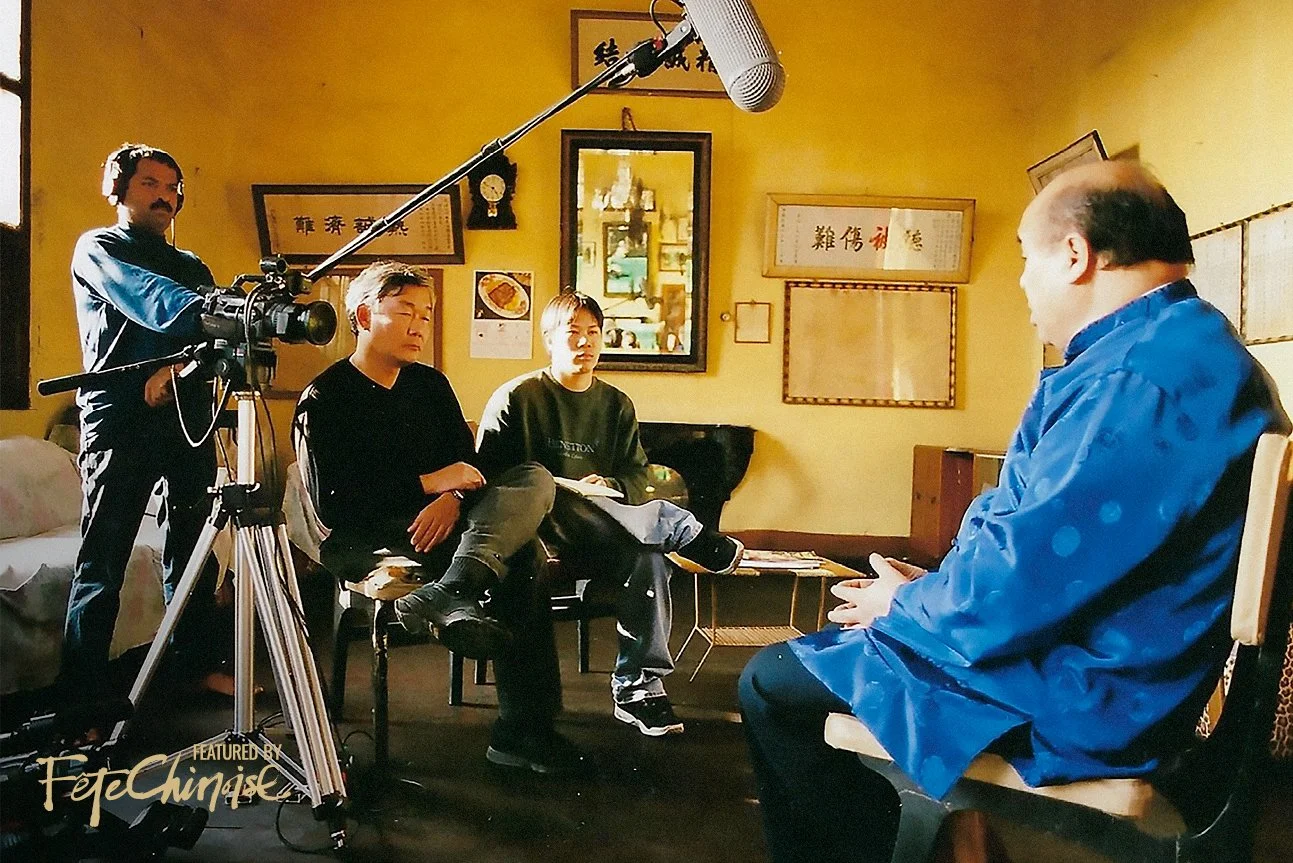
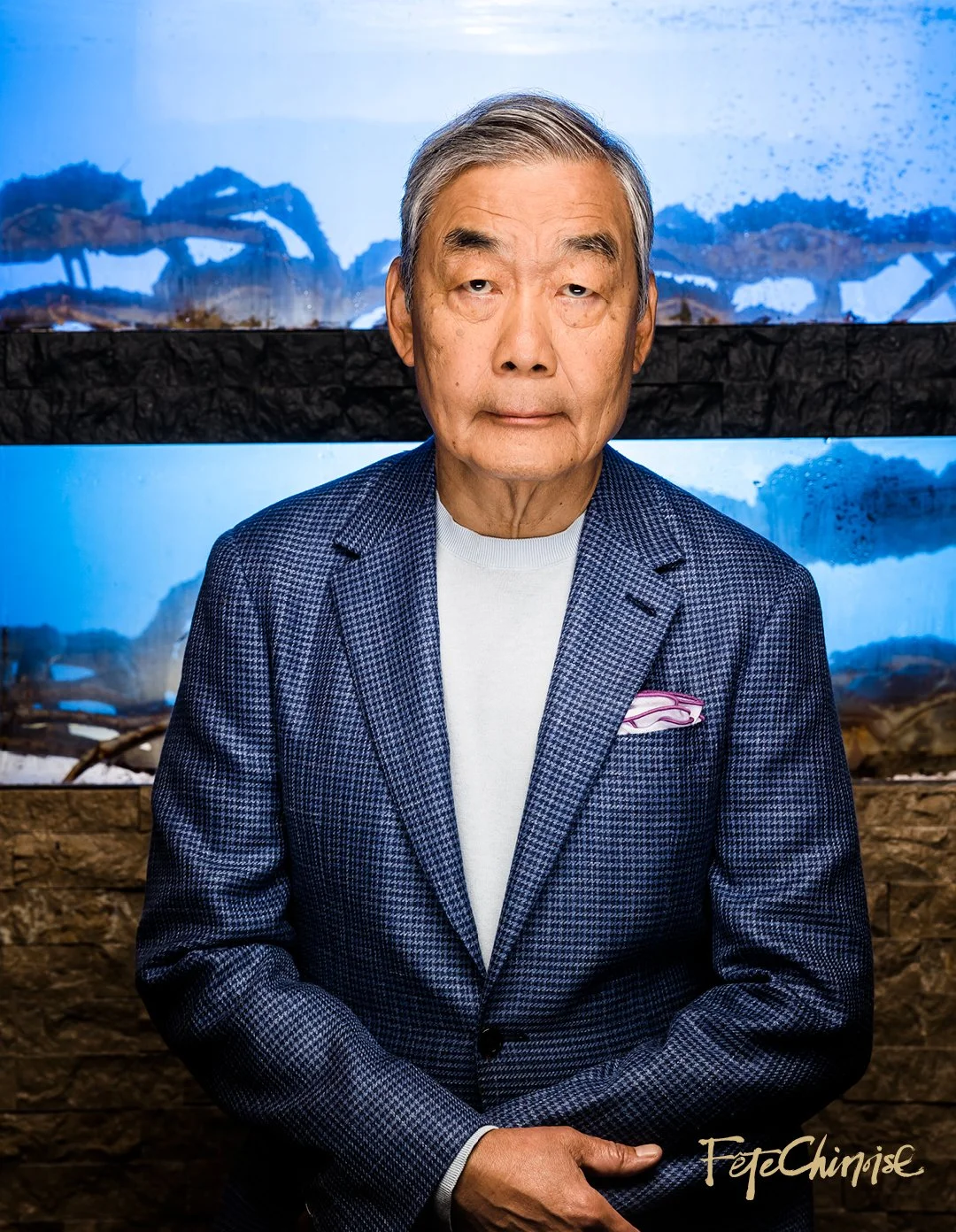
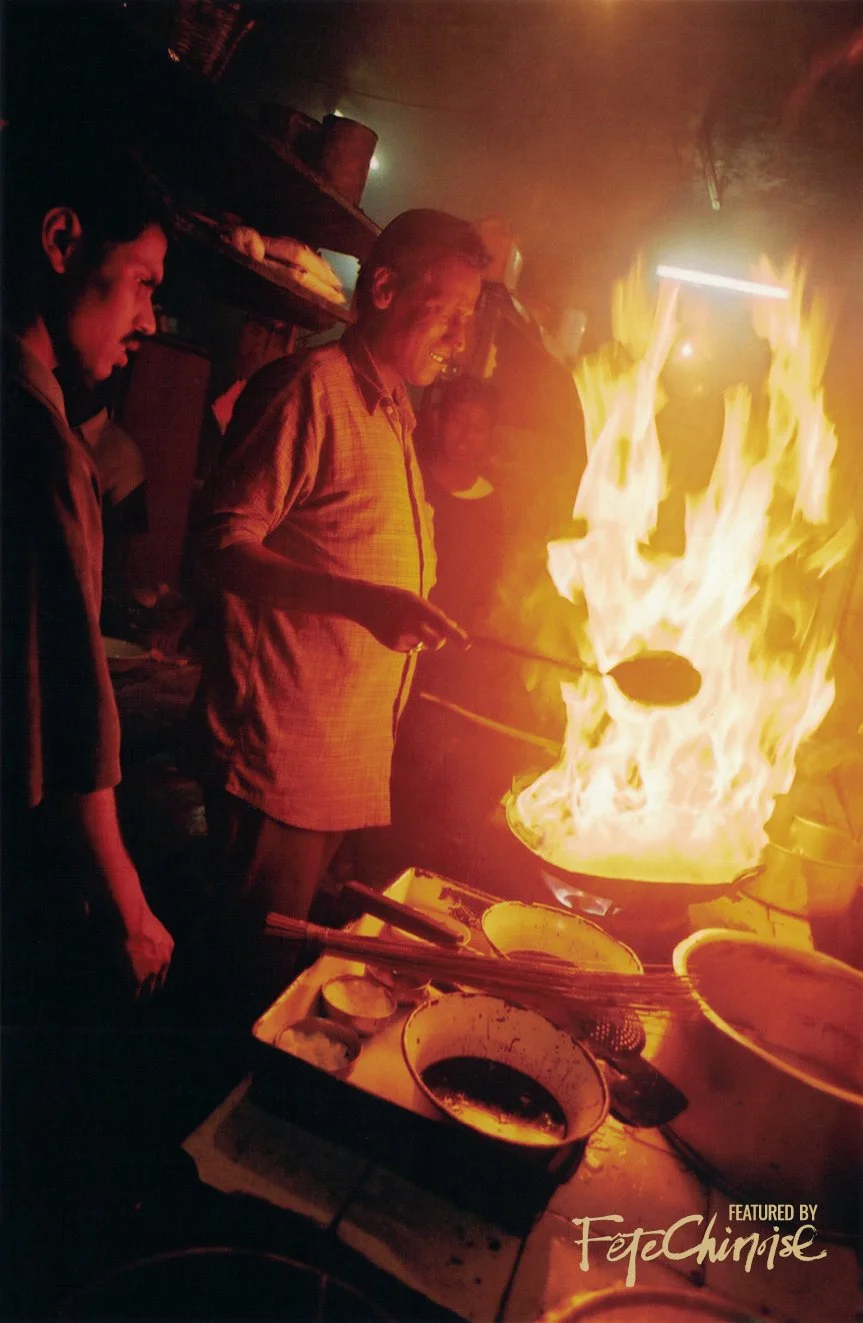
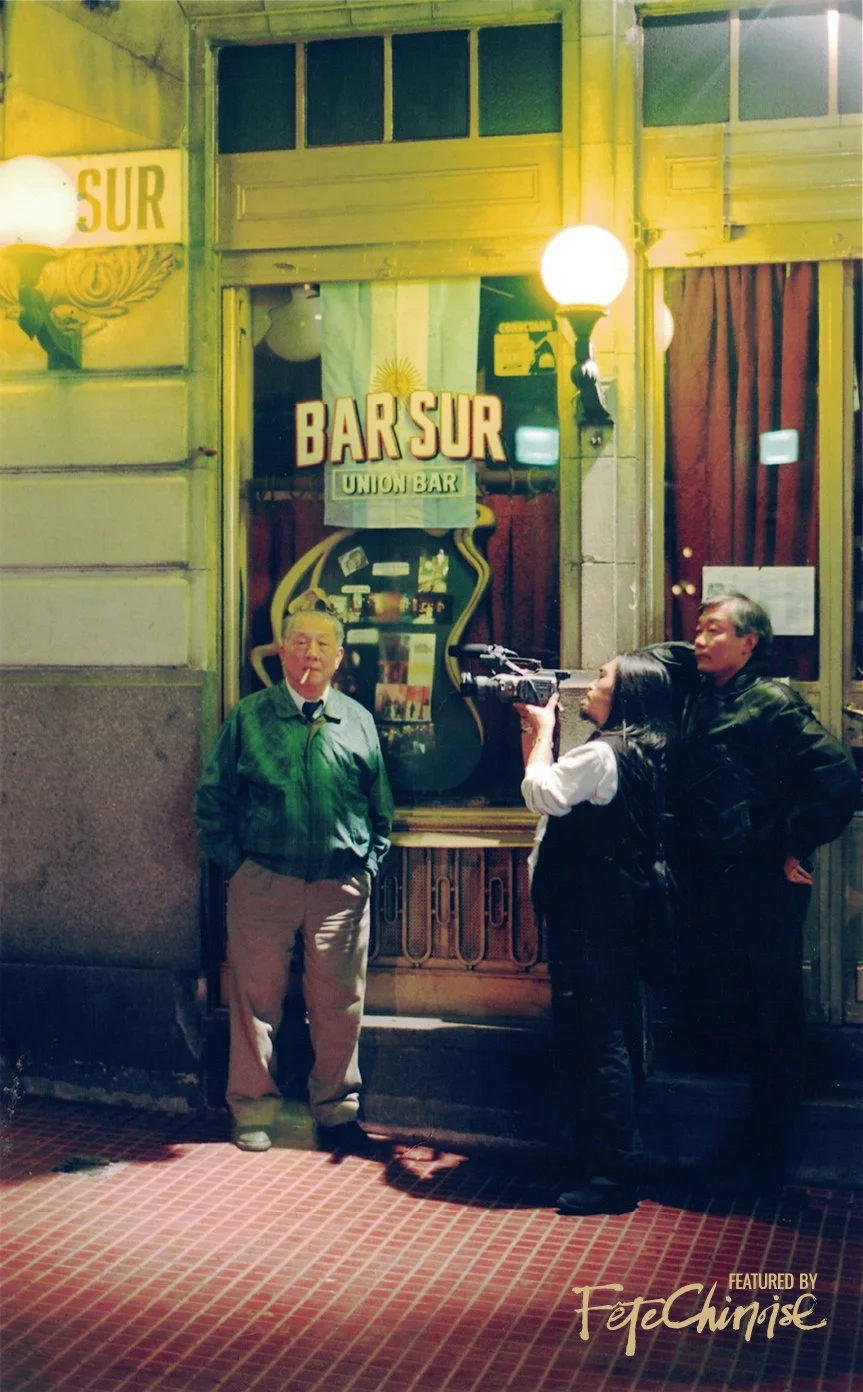

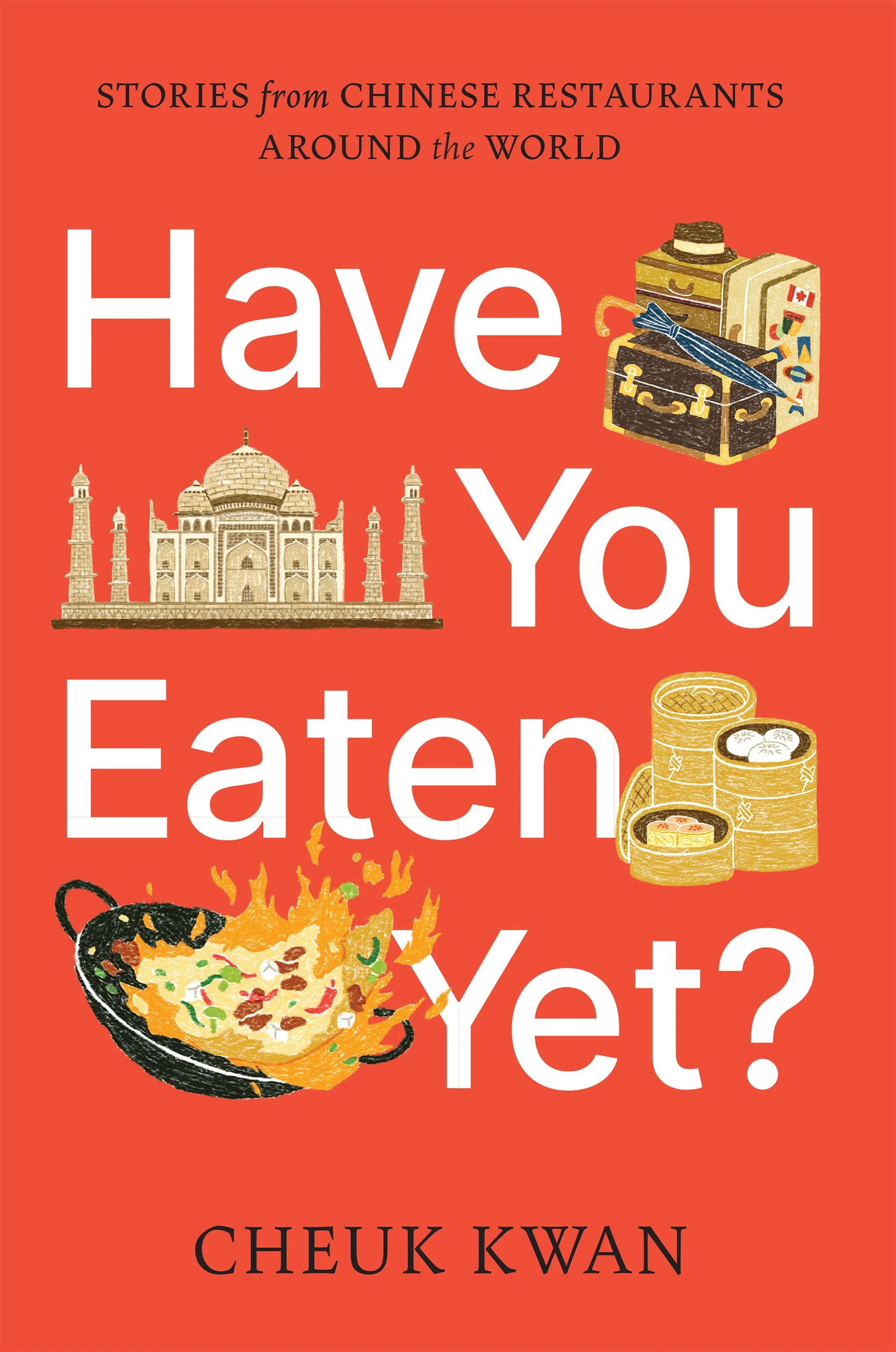


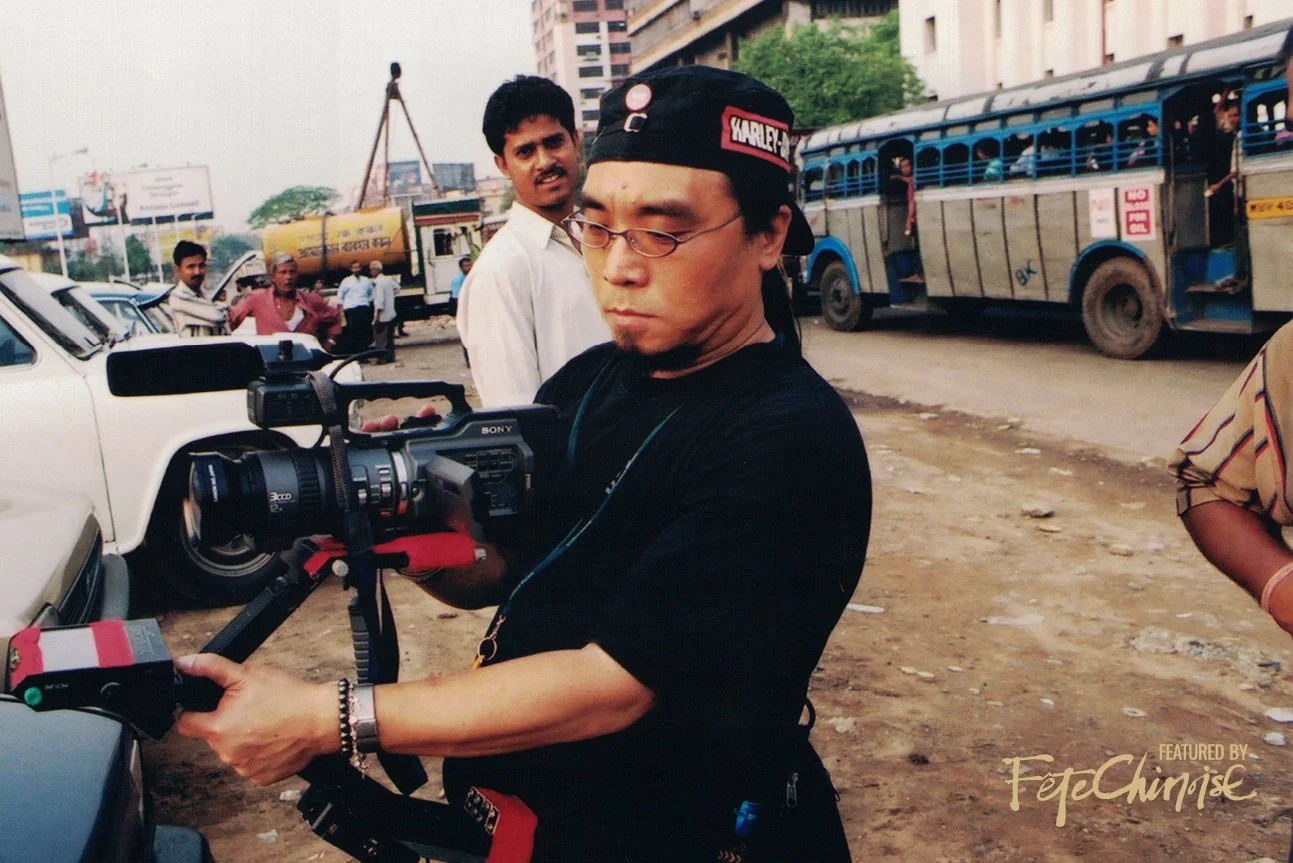
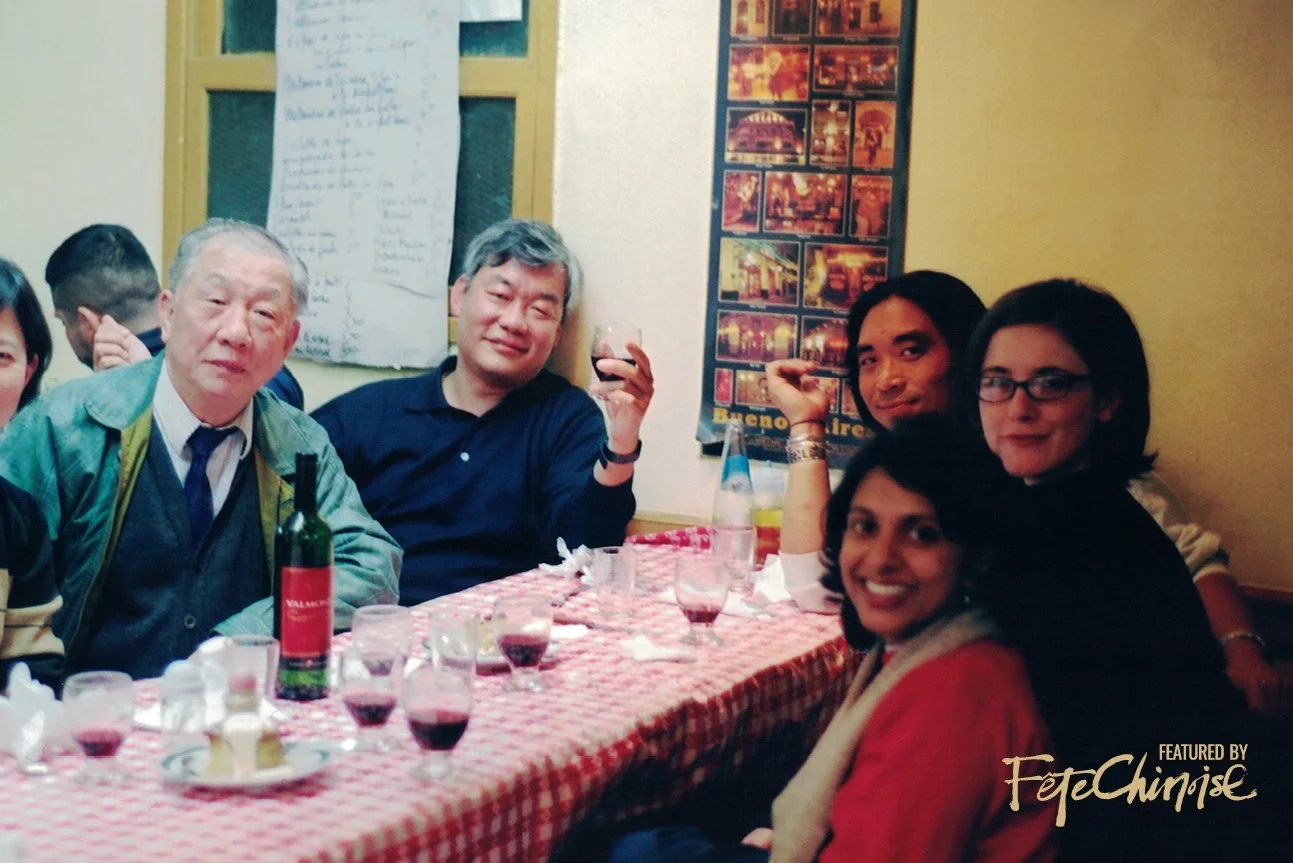






The Toronto Public Library (TPL) Foundation’s Biblio Bash returned to the Toronto Reference Library yesterday. This annual black-tie fundraiser is known for its elegant evening at the iconic library, where celebrated authors joined guests for dinner throughout the atrium. Funds raised from the event support TPL’s vital programs.
Last year’s event raised funds for the Foundation’s Newcomer Community Initiative, and this year, Biblio Bash surpassed its fundraising target, bringing in an impressive $1,070,100 to support youth programs and initiatives focused on social health and mental wellness for teens across Toronto.